Calgary Aikidō at Rakushinkan Dōjō
The Art of Harmony and Martial Spirit.
Experience traditional Aikidō training in North West Calgary and cultivate the martial principles of Japanese budō.
The Calgary Aikido community consists of many dojos, but Calgary Rakushinkan stands apart as a traditional Japanese martial arts dōjō dedicated to preserving the art’s martial essence. Our training draws directly from the older schools that shaped aikidō — including Daitō-ryū, Asayama Ichiden Ryu and classical sword traditions — to uncover the true essence of aiki. Few places in the world approach aikidō in this way.
Ready to begin your Aikidō training in Calgary?
👉 Sign up for a class here and experience authentic Japanese martial arts in a welcoming local dōjō.
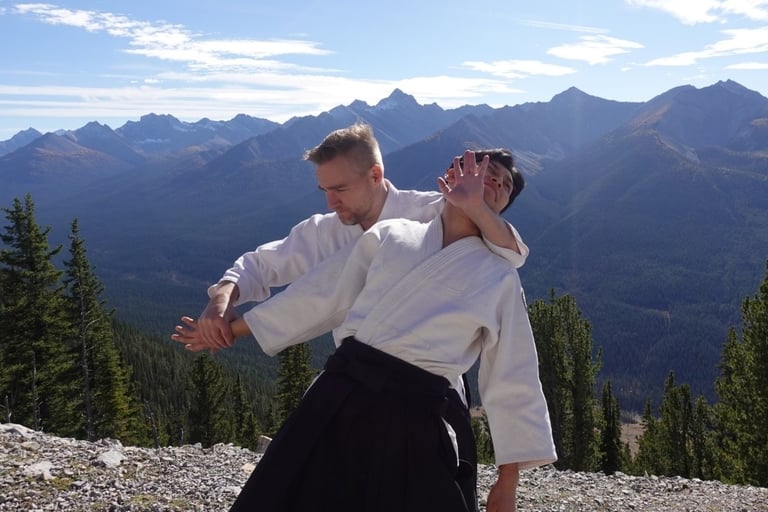

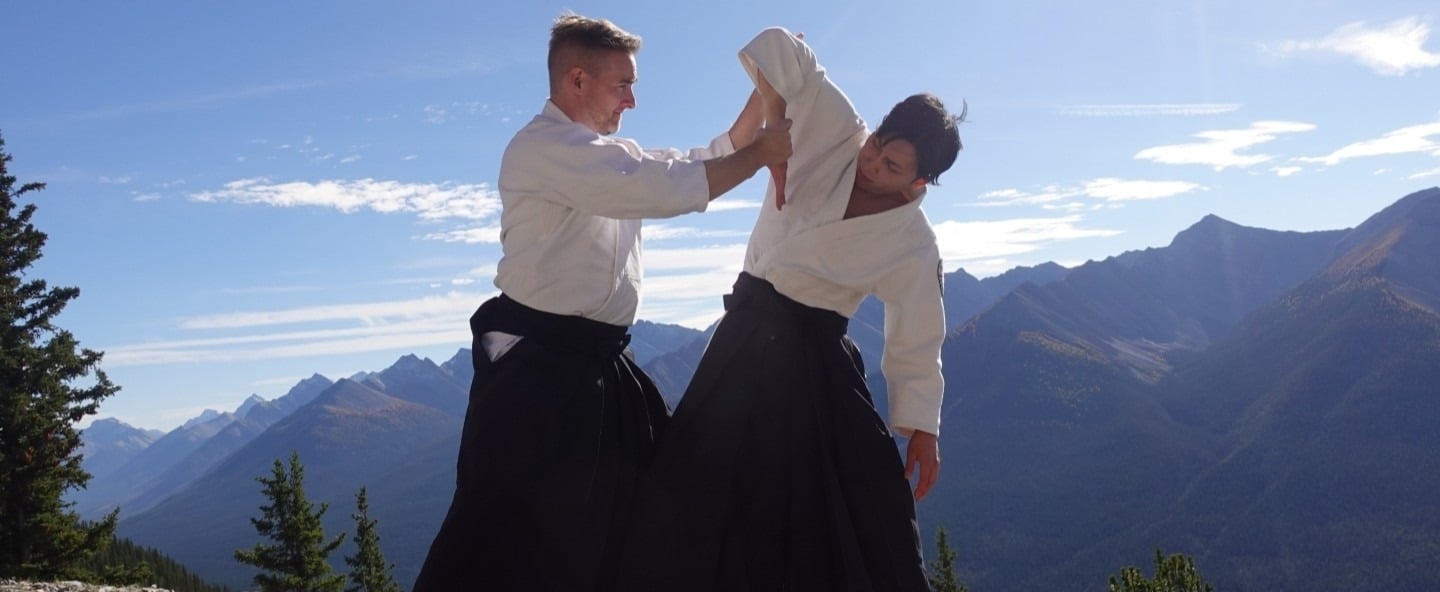

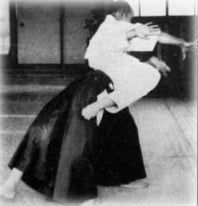

What You Will Learn in Rakushinkan Aikidō
Training in Aikidō at Rakushinkan includes:
Throws (nage-waza): Circular movements that redirect an opponent’s energy into powerful projections.
Joint locks (kansetsu-waza): Techniques that immobilize through control of balance and structure.
Ukemi (receiving techniques): Learning to fall, roll, and move safely while preserving martial integrity.
Weapons practice: Training with the sword (ken) and staff (jō) to deepen understanding of empty-hand technique.
Principles of timing and distance (maai): Essential martial awareness that underlies all effective technique.
Why Train Aikido at Rakushinkan?
Authenticity: Instruction grounded in the historical roots of Aikidō, connected to Daitō-ryū and kenjutsu.
Depth: More than just repetition of techniques — you learn the principles that make them work.
Community: A welcoming environment where students train seriously while supporting one another.
Location: Conveniently based in North West Calgary, serving students from across the city who seek authentic Japanese martial arts training for adults and youth.
Practicality: our techniques work against non-compliant opponents. We do not practice for performance or choreography.
Breath, Posture, and Centre
By emphasizing fundamentals — breath, posture, and the body’s centre — training is not about merely imitating movements. Instead, it is about directly experiencing and asking:
Why does balance break?
Why does a technique succeed?
This approach keeps practice accessible, while guiding students toward the same principles that underpin the older martial traditions of Japan.
Aikido as Lifelong Practice
For us, Aikidō is more than technique — it is a discipline of movement, awareness, and adaptability. Training develops not only martial skill, but also composure under pressure and a deeper connection between body and mind.
Rakushinkan Aikidō offers students in Calgary a chance to explore this martial art in its full cultural and technical depth — a practice that unites Japanese tradition with living training in the dōjō.
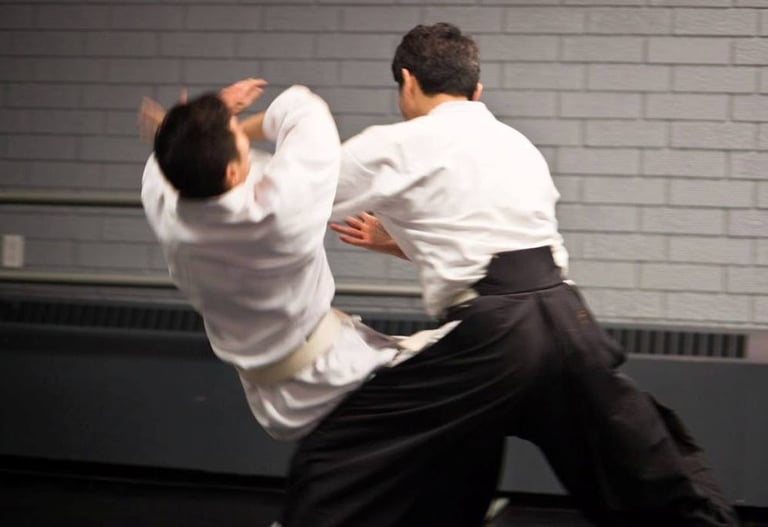

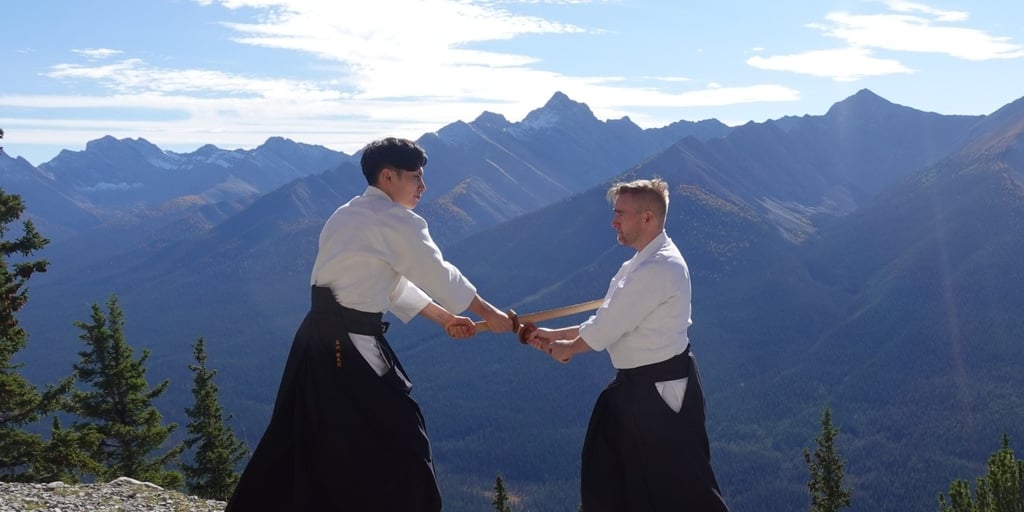

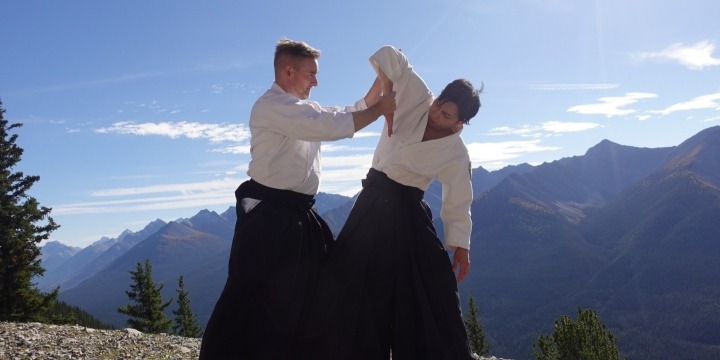

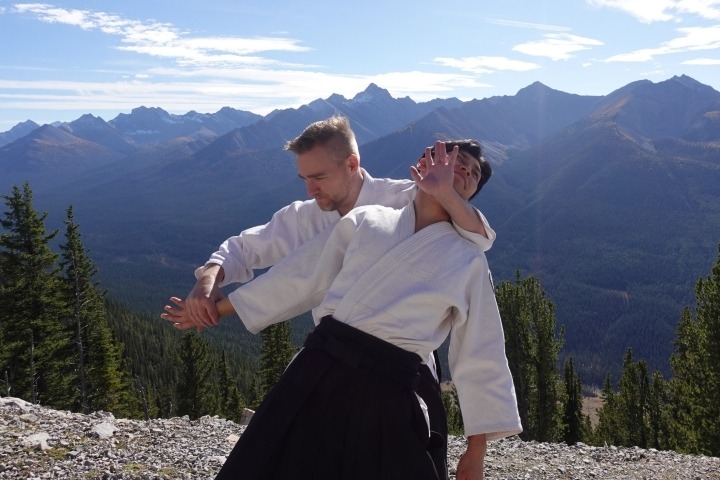

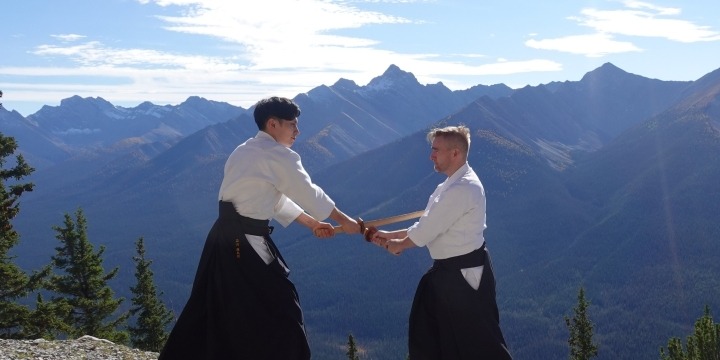

What Is Aikido?
Aikidō is a Japanese martial art created in the early 20th century by Ueshiba Morihei. Unlike combative systems that emphasize strikes or overpowering force, Aikidō focuses on blending with an opponent’s movement and redirecting energy. Its name translates as “the way of harmony with energy.” Today, it is practiced worldwide — including here in Calgary — as both a martial discipline and a means of personal development.
At Rakushinkan, Aikidō is practiced not as a sport, but as a living martial tradition — a means of cultivating timing, precision, and awareness through the study of body movement and classical technique. Our Aikidō is one part of a broader study that also includes Daitō-ryū Jūjutsu, Kenjutsu, and Iaijutsu — arts practiced together to preserve the classical relationship between empty hand and sword.
The Rakushinkan Approach
At Calgary Rakushinkan, Aikidō is taught in its martial context, closely connected to the sword arts from which it developed. We emphasize:
Practical martial principles – learning how to receive, redirect, and neutralize force.
Connection to kenjutsu – understanding Aikidō techniques as extensions of sword movements.
Refinement of movement – developing posture, timing, and control rather than relying on strength.
Partner training – practicing techniques in cooperation to build skill, awareness, and safety.
Our approach ties each technique back to its roots, giving students insight into why movements exist and how they function as martial responses.
Do you practice weapons in Aikido at Calgary Rakushinkan?
Yes! Sword practice is fundamental to our aikido practice. We have exercises and forms involving sword, jo and tanto related to our aikido. Further we have separate but related weapon arts as part of our overall practice.
Where are your Aikido classes located in Calgary? Do you have multiple locations?
We are located at the Mount Pleasant Community Association in NW Calgary — convenient for students from surrounding neighborhoods such as Rosemont, Rosedale , Tuxedo Park, and Crescent Heights. We are working on a second location right now... stay tuned...
Please check our schedule.
Do I need experience to join Aikido classes at Calgary Rakushinkan?
Absolutely not! Our Aikidō classes in Calgary are beginner-friendly and focus on posture, movement, and safety. You’ll learn at your own pace, starting with basic footwork and balance exercises before progressing to techniques.
Can experienced martial artists or Aikidoka benefit from training at Calgary Rakushinkan Aikido?
Absolutely! Experienced practitioners of karate and jujutsu find Calgary Rakushinkan Aikido refreshes their understanding of core principles and elucidates the principles of soft power and connection. The presence of our Daito Ryu and kenjutsu practice ensure that we never lose our martial perspective.
For the experienced Aikidoka, they can benefit from our core exercises in aiki and develop their art to a higher level.
"Aikido" vs "Aikidō"?
The differences come from how Japanese words are romanized — that is, how they’re written using the Latin alphabet.
The most accurate and internationally recognized system is Hepburn Romanization, which represents Japanese pronunciation in a way that’s easy for English speakers to read. In this system, long vowels are marked with a line called a macron (¯).
So the correct Hepburn spelling is Aikidō, showing that the final “o” is long — pronounced like “oh” in “go.” You’ll also see Tōkyō, Kōdōkan, and Dōjō written the same way.
However, because macrons can be awkward to type on standard keyboards, most English-language writing simply drops them. That’s why Aikido is the most common form in dojos and publications outside Japan. Other spellings like Aikidou come from Kunrei-shiki or Nihon-shiki, two systems used in Japan for linguistic and bureaucratic purposes. These systems mirror how words are written in kana — for example, the long “o” in 合気道 appears as “おう” (ou) in Japanese syllabary. So “Aikidou” reflects the spelling, while “Aikidō” reflects the sound.
A rare variant, Aikidoh, occasionally appears in older English materials. It’s not part of any formal system — it’s just a phonetic attempt to show the long “o” sound using plain English letters.
In short:
Aikidō – linguistically correct (Hepburn system)
Aikido – most common and practical English spelling
Aikidou – kana-based Japanese romanization (Kunrei-shiki/Nihon-shiki)
Aikidoh – informal English phonetic spelling
All mean exactly the same thing: the Japanese martial art 合気道 — the “Way (dō) of Aiki.”
“合気道” vs “合氣道”
Both are read Aikidō and mean the same thing. The difference lies in 氣 (old form) and 気 (modern form). After WWII, Japan simplified many kanji, and 合気道 became standard, but both forms are common. Sometimes "合氣道" is used to give a more traditional connotation.
In the book "Kenjū Ittai no Aiki", the classical form 合氣道 is used intentionally to refer to prewar budō and "合気道" to the post war forms like that of Kisshomaru Ueshiba (Aikikai).
More questions answered in our FAQ.
Calgary Rakushinkan
カルガリー楽心館
Experience traditional Japanese martial arts training.
© 2025. All rights reserved.
CONTACT
rakushincalgary@gmail.com
(403) 401-8257
